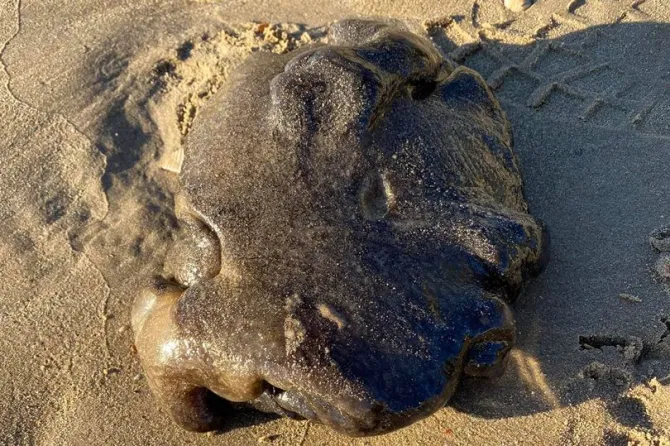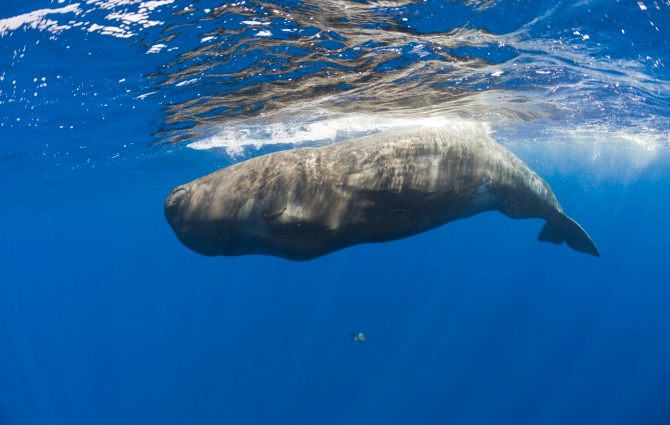 DNBC NEWS
DNBC NEWS
 DNBC NEWS
DNBC NEWS
RAKING IT IN Bizarre ‘alien’ object washes up on Aussie beach could be worth £800k if it turns out to be whale vomit
Alahna Kindred 8 Jul 2020, 21:59Updated: 9 Jul 2020, 6:24
THIS bizarre 'alien' object that washed up on an Australian beach could be worth up to £800,000 if it turns out to be whale vomit.
The blob-like figure was found on Urangan Beach in Queensland last Friday.

The woman who stumbled up on the sand-covered lump shared an image on Facebook asking if it was a "dangerous stonefish".
However, many of those comments said they thought it was ambergris - which is a rare and valuable ingredient used in making perfume.
Ambergris - a hard amber-like substance - is a highly sought after by perfume companies and can cost up to £18 per gram.
In 2016, a family in South Australia made more than £800,000 after they found a clump of ambergris that had washed ashore.
In Morecambe, Lancs., a beachwalker found a lump of the stinky yellow rock worth up to £100,000 in 2016.
Ambergris is made in the intestines of sperm whales as "slurry" before it hardens in the water as it's spewed from its body.
The woman was told by Facebook users to sell the blob on eBay and one person told her it was "worth a lot".
However, a university professor told her ambergis was more wax-like in its appearance and she shouldn't get her hopes up.
Professor Sandie Degnan, of the University of Queensland, told Yahoo News Australia she was unsure what it that was.
Her best guess is that it was "sea pork" - which gets its name as it resembles slabs of pig fat
She said: "I do think it’s likely that this is a form of the animal that is commonly referred to as sea pork.
"It is a kind of sea squirt, related to the cunjevois that many people are familiar with growing on our rocky shores (step on them and they squirt out water; fisherman cut them open to use their guts as fishing bait).
This particular kind of sea squirt, probably in the genus Aplidium, is actually a colony of hundreds of tiny individual sea squirts, compared to a cunjevoi that is one single, large individual.
“Sea squirts (Tunicates) belong to the phylum Chordata, which is the same group of animals to which we humans belong – of all the animals that we call invertebrates, because they have no back bone, the sea squirts are our closest relatives!”
